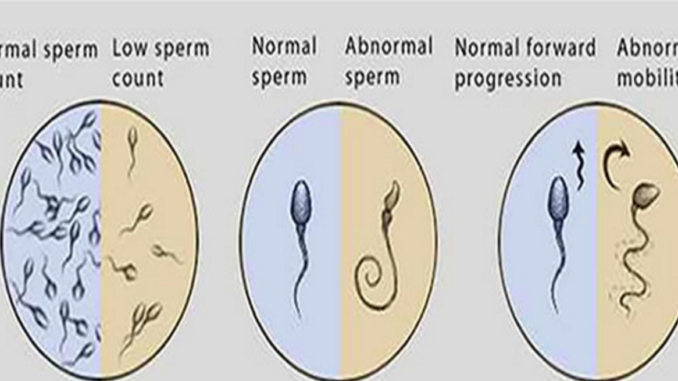
As Nigerian Fertility experts began consultation on ethics in Assisted Reproduction Technique, the high rate of infertility among Nigerian men has been linked to high consumption of chemically grown and processed foods.
In the an interview with journalists during a Public Discussion on Ethics in Invitro Fertilisation, IVF, practice in Nigeria, the President Association for Fertility and Reproductive Health, AFRH, Dr. Faye Iketubosin , who traced the problem on the food chain said these foods have been causing harm to both men and female. Iketubosin, a Consultant Obstetrician & Gynaecologist said “Male fertility has been on the increase in the last 20 years.
According to him, the average sperm count in men has dropped as such that the World a Health Organisation, WHO, actually estimates that it’s now downward from 20 million to 15 million and that’s because of the global food chain trend.
“It is so because of the food chain. Eating a lot of processes foods that are grown with chemicals and productions. These chemicals have now gotten to the food chain and affecting us in negative ways resulting to infertility on the male side.”
He said while the causes of male infertility could be trace to chemically grown and processed foods, the female infertility is mainly caused by their career pursuit resulting to delay in marriage and child bearing.
“The female side, there are also a number of factors which also affects fertility. One of them is that, more women have embarked on successful careers causing delay in having children. A woman has a life span in which she can achieve children naturally. So by the time she begins that quest for child, they would have gotten too old.”
He argued that, the only way to solve the problem of chemically grown and processed foods is to imbibe the culture of organic farming.
“In some countries, they have gone back to organic farming and products which tends to be more expensive than the processed foods. This will take more of a bigger government policy to actually look into agricultural policy which should monitor our food chain” he added.
Speaking on the Ethics in ART, Faye said the forum was organized to listen to different groups and religion how they feel about the effectiveness of In Vitro Fertilization, adding that the proceeds of the public discussion would go into the drafting of Ethical Practice Guidelines for ART activities by the AFRH.
“It’s an enlightening session and also an information gathering for practitioners, we as practitioners are concerned about we carrying out our duties in an ethical way. We need to speak to the public to get their opinion on certain things that we do which we think maybe controversial, particularly when they are in conflict with our culture. So at the end of the day we want to know what is of ethical standard as regard our profession in Nigeria” he said.
Speaking from the religious perspective, Dr. Ahmad Sa’eid of the department of surgery, Lagos State University Teaching Hospital, LASUTH, who was a panellist argued that for IVF to be considered, the religions in the country should be put in place.
“This program will provide a framework for some kind of policy for the government for development and maybe for future presentation as a kind of law. We can see the religious aspect of it and therefore we are hopeful that whenever these policies will be made and laws developed, it will take into cognizance the fact that more than 90 percent of the citizens of this country are either Christians or Muslims. So you can’t make a law that will disregard these fates.
“We want to assume again that when such policies or laws are developed, it will also take care of the concern that our culture is very important to the people who are citizens of this country. The fact that it’s happening in other parts of the world doesn’t mean that everything happening there must be imported wholesale into Nigeria. Child bearing brings joy but the fact that I want to fill the joy of child bearing doesn’t mean that I must get that at all cost” he said.
On his part, Chairman AFRH Ethics Committee, Dr. Richardson Ajayi , commented that the essence of the programme was to enable the practitioners reflect to the perspective of the society as regards religion and non-religion.
“The whole concept of ethics is the fusion of different positions. There are religious group that has certain positions and non-religious group have a certain position, so we are only trying to reflect the framework of our society by getting the position we believe is right or wrong according to our own society. The law is a bit slow in Nigeria and one of the objectives of this forum is to be able to reflect that irrespective of the society. Once we know what the society thinks, the next thing is to try and put it into law. This is part of the journey of trying to modify the legal position of what IVF in our country should be” he said.
END

Be the first to comment